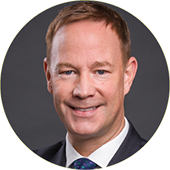This article was originally published on
Paperjam. Read the article
here.
An important consideration arising from the current geopolitical environment, market conditions, increasing interest rates and inflation at a 40-year high, is the need to review current wealth planning strategies, and how insurance solutions can help.
Insurance-based investment products are an efficient, yet arguably an under-utilised solution that can help build diversified and sustainable investment portfolios, capable of supporting the futureproofing of High Net Worth (HNW) individuals and families’ wealth stretching across generations.
Wealth professionals are faced with investors’ growing concerns over their current asset allocation strategies. Since 2021, HNW individuals have been increasingly worried about rising inflation and climate change, which have become two of their top concerns, according to a survey by UK advice firm Saunderson House[1]. The study finds that inflation has re-emerged as one of the main financial wellbeing worries, while climate change has reached the list of the top five issues for the first time.
Wealth Assurance solutions provide investors with the flexibility to efficiently access to alternative investments.

Andreas Meier, Chief Investment Officer
Lombard International Assurance.
In light of this situation, many financial professionals are turning to alternative assets (for example private equity, private debt or real estate). Private equity assets invested by HNW individuals are set to increase 2.4 times to $1.2trn by 2025, according to a study by Boston Consulting Group[2]. Another recent survey showed that around 41% of HNW individuals have at least 20% of their portfolios allocated to alternative investments, with 74% of respondents now allocating more than 10% of their portfolios to alternative investments, up from 68% last year and 50% in 2018[3].
The challenge is how to incorporate alternative investments effectively into clients’ portfolios, while also taking into consideration the following wealth planning objectives:
- Maintaining a flexible, long-term diversified, and uncorrelated investment portfolio, including adequate liquidity;
- Efficiently managing investment returns, accumulated wealth and inheritances where possible;
- Take into account non-financial goals and aspirations;
- Segregating and protecting wealth from bankruptcy and third-party actions; and
- Passing on wealth to future generations.
When discussing their wealth planning, HNW individuals and families are presented with the opportunity to transfer their portfolios into more efficient investment structures, enabling them to achieve their aim of expanding their exposure to alternative investments.
Wealth Assurance, also known as Unit-Linked Life Insurance, not only meets these needs but also provides financial professionals with a comprehensive means of managing their private investor clients’ wealth. They can offer a broad range of benefits from a wealth accumulation and succession planning perspective, also delivering efficient service in terms of wealth administration. Nonetheless, whilst non-financial goals are increasingly top of mind when it comes to building a sustainable wealth planning strategy, Unit-Linked Life Insurance is well positioned to facilitate ESG investing, on account of its long-term nature and breadth of investment options.
Today’s changing market conditions provide the opportunity for financial professionals to re-engage with their clients to ensure that their investment approach, wealth accumulation, and succession plans are still relevant to meet their evolving needs. As a flight to more sustainable and diversified investing unfolds, insurance-based investment solutions, with their flexibility to provide efficient access to alternative investments, should become a key component of wealth accumulation and succession planning strategies.